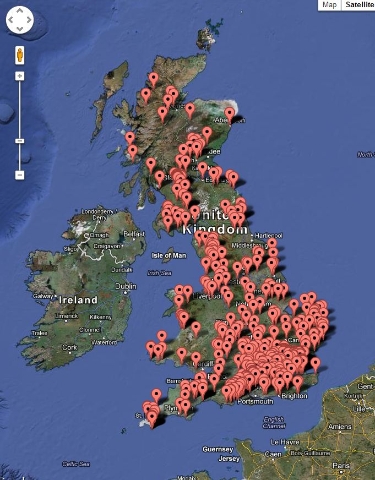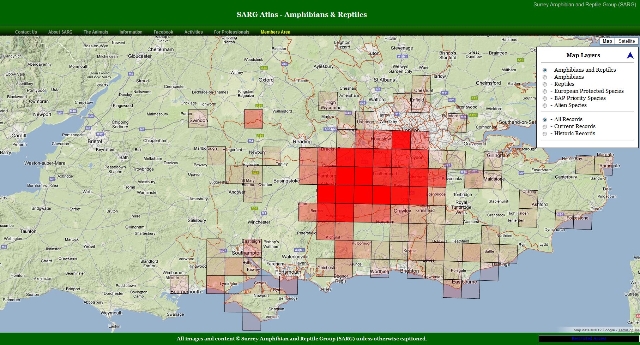 The Record Pool is an online database which has been developed by Herp Worker's in the UK. The project is a partnership with Amphibian & Reptile Conservation, Pond Conservation and other experts in the field such as Steve Langham (Surrey ARG) and Lee Brady (Kent County Recorder for Herpetofauna). The intention for the Record Pool is to help people, outside of official recording schemes, to report when and where they see reptiles or amphibians in the UK.
The Record Pool is an online database which has been developed by Herp Worker's in the UK. The project is a partnership with Amphibian & Reptile Conservation, Pond Conservation and other experts in the field such as Steve Langham (Surrey ARG) and Lee Brady (Kent County Recorder for Herpetofauna). The intention for the Record Pool is to help people, outside of official recording schemes, to report when and where they see reptiles or amphibians in the UK.
The Record Pool has recently launched a survey sheet for people to report multiple sightings from multiple sites and on different dates in order to get more detailed information which may not have entered other online recording schemes. The Record Pool is being refined all the time with a bottom up approach of volunteers testing and using the system from the front end (web site and web forms) and also testing the functionality of the back end (admin system).
2,000 records have been collated
To date over 2,000 records have been collated and these have now been extracted and saved into excel spreadsheets and sent to local recorders in the following counties:-
- Kent, Surrey, Oxfordshire, Essex, Cheshire, Lancashire, Hampshire, Gloucestershire, Berkshire
- Perthshire, Glasgow (city of), Dumfriesshire, Lanarkshire, Inverness-shire
This first round was from counties which had more than 5 records as of August 2012. From the admin system the leading counties (submissions) were as follows
- Essex 291
- Hampshire 203
- Lanarkshire 189
- Herptile ID App records (no county named) 152
- Devon 32
The next round of reporting is being planned for December 2012. If you would like to have records for your ARG, LRC then please contact us on This email address is being protected from spambots. You need JavaScript enabled to view it.
Future developments
The following developments as suggested by local recorders and the volunteer testers will be progressed over the next month or so
- Move the Record Pool to its own domain recordpool.org
- Add a photo/sound/video file upload facility
- Optimise the survey sheet and sighting card for mobile devices
- Utilise the Species Icons designed by KRAG
- Place an online recording form on all the free ARG websites listed on the ARGUK subdomain
- Upload data from iSpot, Pond Conservation's Big Spawn, Big Pond Thaw and Big Pond Dip Survey
- Finish the mapping facility on the admin system
Other online recording news
There are exciting developments online from Surrey Amphibian & Reptile Group who are developing an online atlas using their data and displaying amphibian & reptile hotspots within interactive maps on google or bing. The idea is to feed in the information from the Record Pool into this database to help produce an atlas for the South East of England
Here is a snippet of the atlas map taking shape (from Surrey Amphibian & Reptile Group)

Looking forward to see this develop into the first online interactive Amphibian & Reptile atlas for the South East of England.....perhaps the rest of the country.....WATCH THAT SPACE!